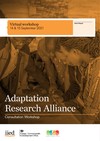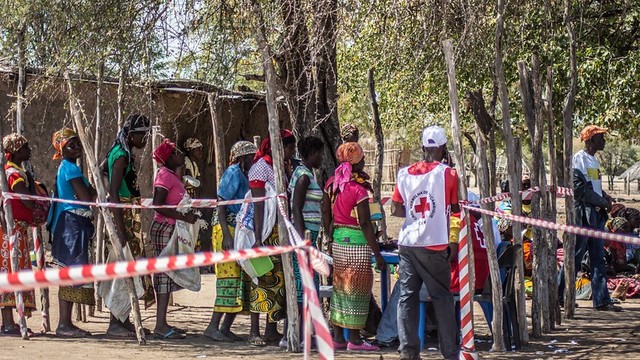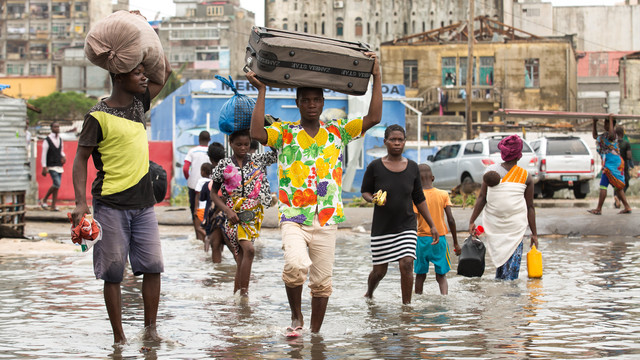Adaptation Research Alliance: accelerating adaptation action and solutions
As part of the Adaptation Research Alliance (ARA) secretariat, IIED worked with partners to help catalyse action-oriented research for high-impact climate adaptation and resilience solutions.

A group of men map the climate vulnerabilities and develop a disaster management plan in a village in India (Photo: SEEDS, via Flickr, CC BY-NC 2.0)
Meeting the Sustainable Development Goals in a changing climate requires transformational adaptation that is driven by local needs. This, in turn, requires actionable, co-produced knowledge of the risks of climate change and tangible solutions that:
- Is usable in practice, outcome-focused and demand-driven
- Creates equitable partnerships between stakeholders and researchers
- Leads to capacity building, and
- Enhances the resilience of those who are most vulnerable to current and future climate risks.
Action-orientated research helps inform effective adaptation to reduce the risks from climate change, particularly for the most vulnerable countries and communities, at the scale and urgency demanded by the science.
Increasing investment in effective action research
The Adaptation Research Alliance is a network of organisations, funders, policymakers and other adaptation stakeholders working together to improve our understanding of climate risks and find adaptation and resilience solutions that meet local needs and demands.
Funded by the UK Foreign, Commonwealth and Development Office, it was officially launched in 2021 at the UN climate conference (COP26) as a global effort to increase significant, long-term, sustained investment in – and opportunities for – coherent, coordinated, collaborative action-orientated research to develop and inform actionable, locally and contextually relevant solutions that meet local needs and demands.
ARA encourages partnerships and collaborations between science councils, development donors, multilateral financial institutions, philanthropic organisations and the private sector and adaptation stakeholders including research, intermediary and civil society organisations, practitioners, academic networks and science-policy-practice networks.
ARA also seeks to promote collaborative and Southern-led research modalities and activities, strengthen local universities and research institutions, build capacity at all stages – from research to action – and facilitate linkages between research and implementation at multiple levels.
What is IIED doing?
Since May 2021, IIED has been working with partners to build the ARA coalition, securing membership and commitments to the alliance ahead of its official launch at COP26. IIED is part of the ARA secretariat and, together with partner SouthSouthNorth, we also lead the ARA coordination unit.
As well as refining, revising and gaining endorsements of the ARA principles we engaged multilaterally, bilaterally and online with stakeholders and potential partners, through workshops and other events, collaboratively presenting the principles with ARA partners and securing membership for the alliance and commitments to its members.
We supported multiple events before and during COP26 and we engaged with funders and stakeholders through articles, videos and social media.
To ensure ongoing learning within ARA and its members to build knowledge about the benefits and effectiveness of adaptation interventions, we have prepared and continue to refine, revise and embed a tracking, learning and sharing framework, ensuring it aligns with existing initiatives.
Additional resources
Adaptation research for impact principles, Nora Nisi, Aditya V. Bahadur (2022), Adaptation Research Alliance
News: Four takeaways from the ARA’s European workshop (October 2021)
Video: Asia-Pacific Climate Week: radical collaboration for adaptation in the Asia-Pacific region (July 2021)
Video: London Climate Action Week: the adaptation action and research sandbox (July 2021)
Video: CBA15: Radical collaboration for action research on adaptation (June 2021)
Video: Gobeshona session: The Adaptation Research Alliance – a new global initiative for action research (January 2021)




